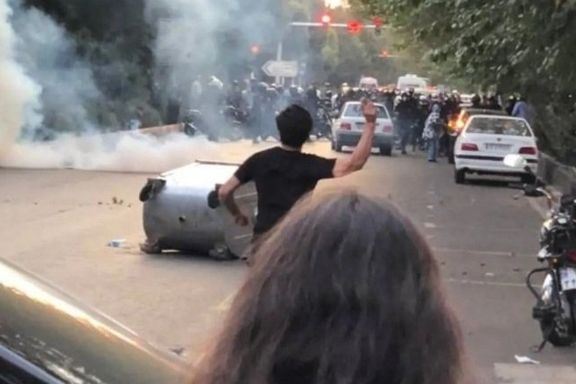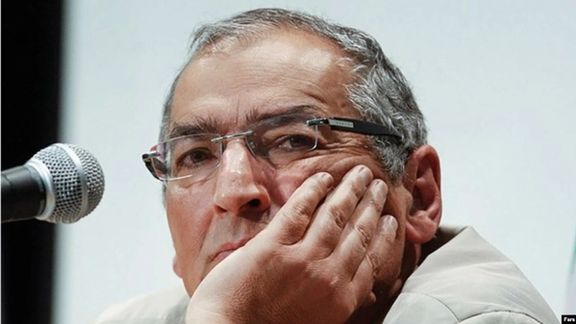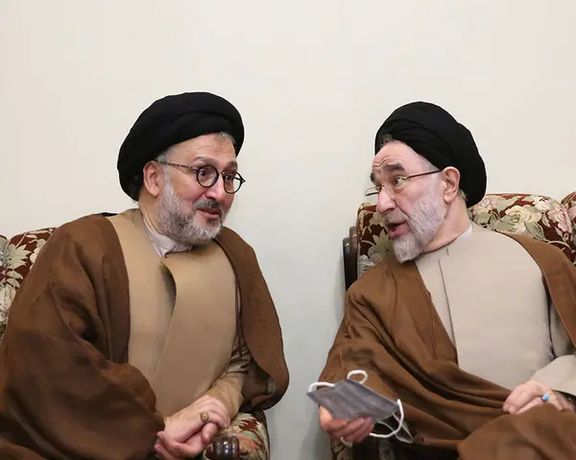Faced With An Uprising, Iran’s State TV Loosens The Safety Valve

Iran's state television has opened its doors to some reformists who are allowed to make hygienic comments about the uprising by the country's youth and women.

Iran's state television has opened its doors to some reformists who are allowed to make hygienic comments about the uprising by the country's youth and women.
But the tightly controlled broadcaster always juxtaposes the reformists with staunch hard-liners who offer counterarguments to the reformists' shy statements about why the system needs to open up to survive.
Even some of the reformists who have taken part in the debates on the Iranian state TV, have said in interviews with relatively independent media outlets in Iran that the state TV's openness is questionable.
Sadeq Zibacalam a usual suspect on Iranian media and foreign-based televisions to comment on almost everything during the past 30 years, has said in an interview with Didban Iran website that "state TV officials' behavior is authoritarian. Like all authoritarian regimes, the state TV also never acknowledges that there might be flaws and weaknesses in the system."
He added that "the grudge and hatred that has been accumulated in the Iranian society over the years is [partly] due to ignoring these weaknesses." He added that the state TV which operates under Supreme Leader Ali Khamenei "has never had a realistic approach to ongoing developments during the past 43 years."

Accordiong to Didban Iran, many observers have been recently criticizing the state TV “which is no longer the point of reference for news and information for the people of Iran." In fact, government media has long ceased to be credible and instead people rely on Persian-speaking broadcasters, such as Iran International and Manoto TV for news and views.
"Just like the government, the state TV attributes the protests to US conspiracies and the actions of Zionists, monarchists and rioters," said Zibakalam, adding that the state TV is part of the Iranian government. It is no surprise as the chairman of the television, Payman Jebelli has reiterated time and again that it is the government's not the people's media. He further added that the state TV does not have any plan to help the regime get out of the current crisis.

Meanwhile, Mohammad Ali Abtahi, a cleric who was former President Mohammad Khatami's chief of staff in late 1990s and early 2000s, said in an interview with Didban Iran that "the state TV's new approach of openness is temporary." He added that some ruling hard-liners say that putting one step back from their uncompromising positions might lead to a domino-like collapse of the system.
Abtahai, who was the head of the Iranian radio in the late 1980s and early 1990s, said, "I believe the open debates that are currently taking place on the state TV might not continue."
Some in the Iranian government believe that hard-liners should not put even one step back from their positions as a result of the protests that followed Mahsa Amini's death in custody, Abtahi argued. This school of thought does not tolerate dialogue, he added. "The other school of thought is reformism. Those who believe in this maintain thatwrong approaches could be corrected in a step-by-step approach," he said. However, he added that social pressure can force hard-liner officials to make compromises about some of their "principles".
However, critics of reformists say that more than two decades of a step-by-step approach has made matters worse and hard-liners more dominant in the government.
Two days after comedian Mehran Modiri belatedly expressed support for the protests, the state TV announced that it has cancelled his talk show, in a sign of intolerance.